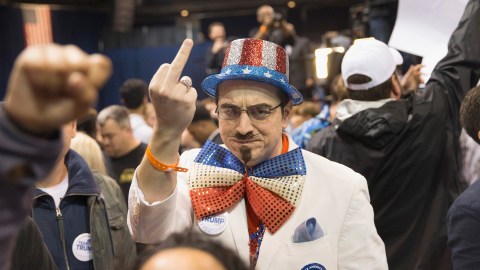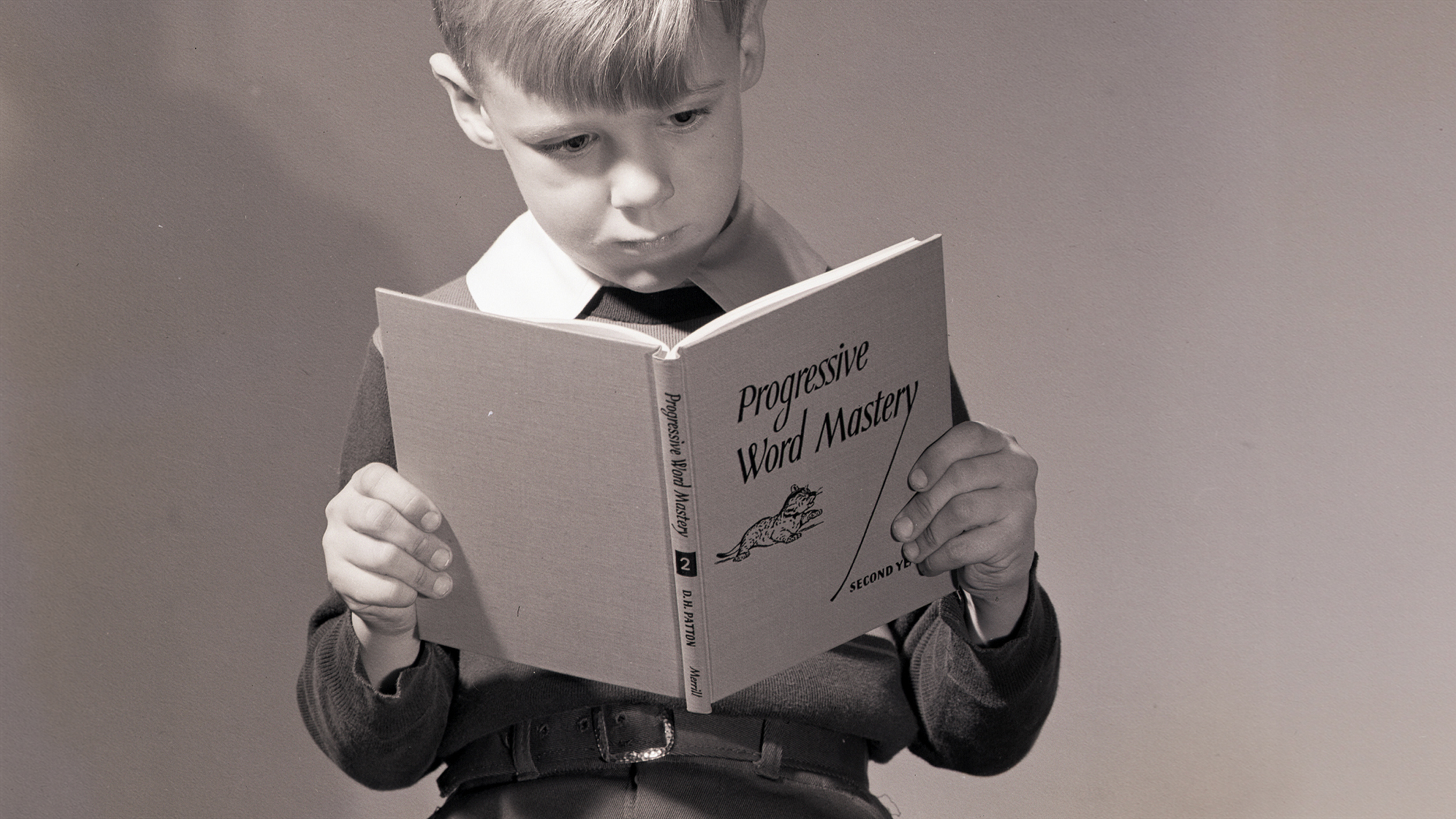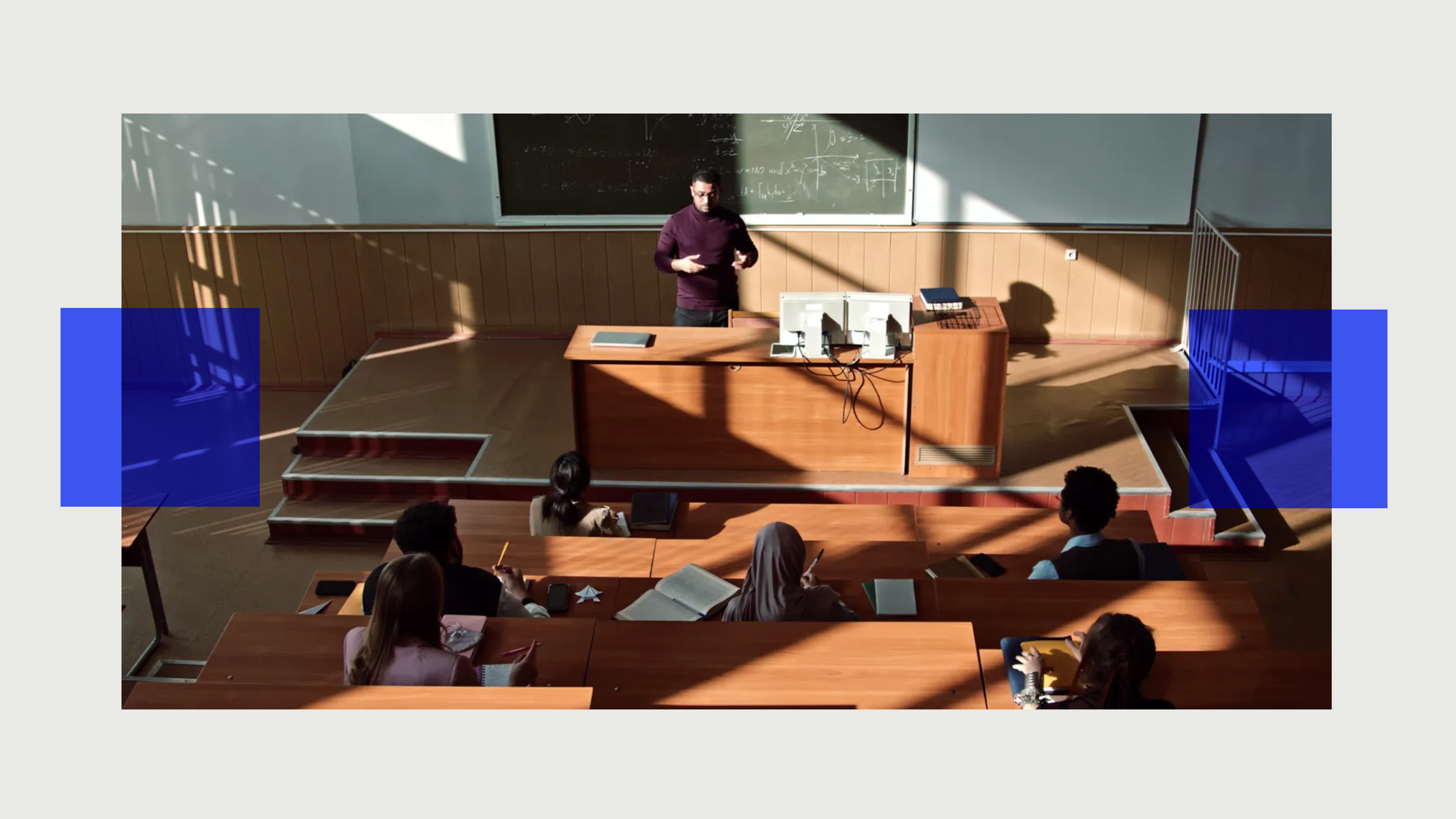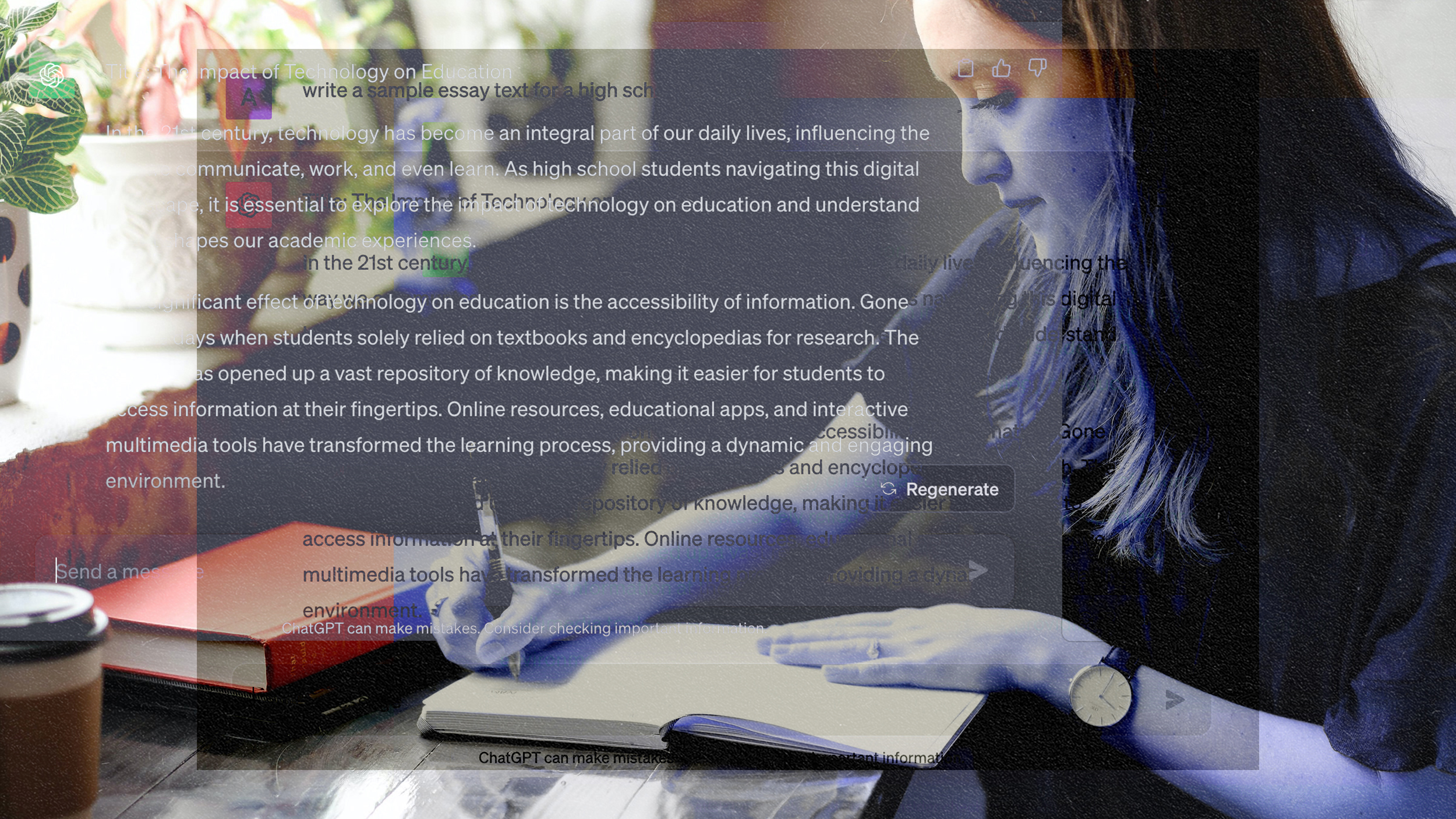What Separates Trump and Clinton Supporters Isn’t Education. So What Is It?

Education is not the main difference between supporters of Hillary Clinton and Donald Trump.
A survey of reader comments in The New York Times found that the ideological divide between voters is more complicated. For starters, while people with more education usually vote for liberal policies, that does not guarantee they’ll vote for Clinton. That first bit of news comes from a Pew Research poll taken earlier this year. The common wisdom is that “highly educated” voters, or people who have obtained at least a college degree, “are far more likely than those with less education to take predominantly liberal positions across a range of political values.” That seems proven true by polls like this one:
But that doesn’t mean they always do. Look at that chart: while “more than half of those with postgraduate experience (54%) have either consistently liberal political values (31%) or mostly liberal values (23%),” according to Pew, there are just as many mostly conservative voters with a college degree as there are without one. The total amount of conservative voters in that chart is incredibly close among voters with all kinds of education. That means that education alone is not a factor for changing voter preference — even though it does lean very heavily toward liberal.
More impressively, the people with the least amount of education vote for a mixed platform far more often than any other group. As Pew explains, “Larger shares take a mix of liberal and conservative positions: Roughly half of those with no more than a high school education (48%) are ideologically mixed, along with 36% of those with some college experience. By contrast, only about a quarter of more educated Americans have ideologically mixed views.” Given the increasing polarization of voter ideologies, this makes this voting demographic arguably the most centrist.
On the other hand, people are voting more consistently with their ideology than they ever have before, according to a 2014 Pew Research Report on political polarization. And it’s only getting worse:
“Much of the growth in ideological consistency has come among better educated adults,” Pew explains, “including a striking rise in the share who have across-the-board liberal views, which is consistent with the growing share of postgraduates who identify with or lean toward the Democratic Party.” However, as with the previous chart, that consistency works both ways. “Among postgrads and college graduates, the shares expressing consistently conservative views have also grown since 2004, from 4% to 10% among postgrads and from 4% to 11% among college graduates. But among both groups, consistently conservative views are at about the same levels as they had been in 1994.” Regardless of how much education voters have, voters of both ideologies are voting more consistently with their party line than they have in the last 20 years.
But not in this election.
Race and gender complicate the usual tendencies of the educated voter demographic. While Bloomberg reports that, “Clinton leads by an average of 12.3 percentage points among white college graduates,” according to its poll data, she suffers with less educated white voters:
Credit: The New York Times
Those numbers might appear to support Pew’s numbers from earlier, but they don’t tell the whole story. “A TargetSmart/William & Mary poll released Tuesday showed 28% of early Florida voters picked Clinton over GOP nominee Donald Trump,” reports The Hill. If voters are voting along party lines more than ever, according to Pew, then why such a dramatic split? Especially in a state where votes are historically evenly split? The change is unprecedented — but it may be explained by personality.
Clinton and Trump are the most unlikeable presidential candidates in modern memory. While conservative voters of all demographics are not warm to Clinton – especially given her inability to meaningfully apologize for the Benghazi email scandal that, like the zombie apocalypse, will never die. But they are voting for her. High-profile Republicans are endorsing Clinton all over the country. Why? They fear Trump. Donald Trump is quite possibly the most divisive candidate ever and, according to poll company Gallup, has the highest unfavorable rating among voters of all demographics ever recorded.
While education may not be a critical factor in this election, personality certainly is.





